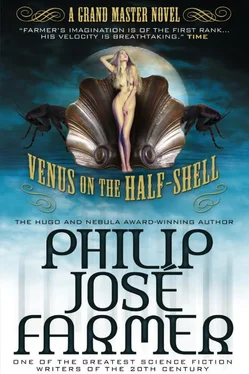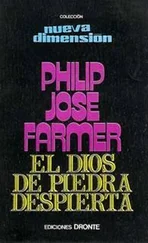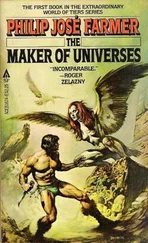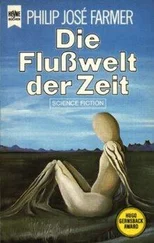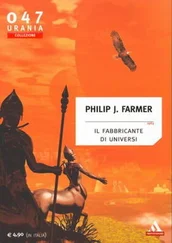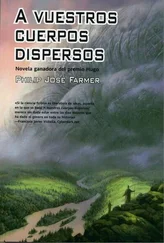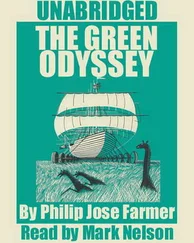Most of the alien names in Venus were formed by transposing the letters of English or non-English words. Thus, Chworktap comes from patchwork. Dokal comes from caudal, which means having a tail. The planet Zelpst is a phonetic rendering of the German selbst, meaning self. The planet Raproshma is a rendering of the French rapprochement. The planet Clerun-Gowph derives from the German Aufklärung, enlightenment. And so on. Most readers sensibly do not concern themselves with such games, but I had fun with them. And I imagine that Trout, though he had only a high school education, read widely, and he would have played the same game.
The philosophical basis of Venus dealt with free will and immortality. Trout, in Breakfast of Champions , longs to be young again. And predeterminism is certainly a theme that runs through many of Vonnegut’s works. Vonnegut is like Mark Twain in that he believes (or writes as if he believes) that everything is predetermined. Twain thought that all physical things and our thoughts and behavior were mechanically fixed from the moment the first atom in the beginning of this universe bumped into the second atom and the second atom into the third. And so on. Vonnegut apparently believes that our troubling and violent lives and irrational behavior are the result of “bad chemicals.”
This interests me because I have been interested in the problem of free will versus predeterminism for about fifty-eight years. But I believe that humans do have free will, though few, however, exercise that faculty. Perhaps I believe this because I am predetermined to do so. But, as Trout, I wrote as if Twain and Vonnegut were correct in their belief in predeterminism.
In any event, Vonnegut is a thorough predeterminist in that his works have no villains or heroes. No blame is put upon anybody for even the vilest deeds and most colossal selfishness, savagery, stupidity, and greed. That’s the way things are, and they can be no other. Only God the Utterly Indifferent is responsible and perhaps not even He. Trout has the same attitude.
Just as Eliot Rosewater, the multimillionaire in Rosewater, Slaughterhouse-Five , and Breakfast , thinks that Trout is the greatest writer that ever lived, so Trout, in his Venus , has Simon Wagstaff, his hero, believe that Jonathan Swift Somers III is the greatest writer that ever existed. Wagstaff also has his favorite poet, Bruga. Some of Somers’ stories are outlined, and some of Bruga’s poems are printed in Venus .
Somers III is my creation, but he is the grandson of Judge Somers and the son of Jonathan Swift Somers II. Those familiar with Edgar Lee Masters’ Spoon River Anthology will recognize the latter two. (Mentioned with the permission of the Masters’ estate.)
One of Somers III’s protagonists is Ralph von Wau Wau (Wau Wau is German for Bow! Wow!). He is a German Shepherd dog whose intelligence has been raised to human-genius level by a scientist. Ralph is also a writer, and I had planned to write a story as by him titled Some Humans Don’t Stink. That story’s main character would be Shorter Vondergut, a writer. (Shorter from kurt , German for short , and Vondergut from the German von der Gut, meaning of the [River] Gut.) Thus, the cycle of fictional authors would be complete. In fact, I did write two stories under Somers’ name about Ralph. These were published, but I doubt I’ll ever write the whole cycle. I have passed through this particular phase. It was fun while it lasted.
The Venus manuscript went to Dell with some photographs of me as Trout (wearing a big false beard), a selected bibliography of Trout’s works, and a biographical sketch of him. All done with tongue in cheek or wherever. The furor on its publication both amused and gratified me. There were even questions about the true identity of Trout in the New York Times. An article in the National Enquirer “proved” that Vonnegut wrote Venus because of its plots, characters, philosophy, and style.
Meanwhile, Mr. Vonnegut was neither amused nor gratified. He was, as I understand, flooded with letters asking if he had written Venus . Some of these said it was the worst book he had ever written; some, the best. The main cause of unhappiness, however, was that he misunderstood a remark made by Leslie Fiedler, the distinguished author and literary critic, while Fiedler was a guest on William F. Buckley’s TV show, Firing Line . The subject was science fiction, and Vonnegut’s name came up. Dr. Fiedler, who knew that I had written Venus but did not reveal its authorship, said that I had said that I was going to write Venus no matter what the obstacles, including Vonnegut. My memory is hazy on the exact wording. Vonnegut, however, apparently thought that Fiedler had said that I was going to write Venus without Vonnegut’s permission. Something to that effect.
Whatever was said, Mr. Vonnegut became angry. Consequently, he forbade me to write another Trout novel I’d planned, The Son of Jimmy Valentine. That would have been my last novel as by Trout, but it was not to be. Vonnegut had the right, of course, to refuse permission for me to write it.
Legally, I had the right to sell Venus to the movies. And, when a producer made a proposal to make an animated movie of it with The Grateful Dead providing the music, I was elated. But Mr. Vonnegut phoned me and expressed his regrets that his lawyer would sue the producer if a movie was made. Vonnegut told me he was sorry about this, but I was very prolific and so would not miss any money I might get from the deal. Again, he had the moral right to scotch this proposal. Also, I doubt that anything would have come from the proposal. I’ve had over forty of my works optioned for Hollywood, and nothing has come of any of these.
The fun continued. Many letters addressed to Trout were sent on by my agent or the publisher. One letter purported to be from another Vonnegut character, Harrison Bergeron. Trout was invited to be the artist-in-residence during the 1975 Bicentennial Literary Explosion in Frankfort, Kentucky. The editor of Contemporary Authors sent a letter inquiring about including Trout in the book for 1976. She complained that Trout was supposed to have written 117 novels, but she could find only a reference to Venus on the Half-Shell. “It would seem,” she wrote, “that Kilgore Trout is a pseudonym. Would your agent furnish the real name of the author?”
As Trout, I filled out the data-forms she had sent and mailed them to her through my agent. I explained that all my novels had been originally published by disreputable fly-by-night publishers who had not paid me any royalties and had not even paid a fee to register my books with the Library of Congress. I never checked the 1976 issue, but I doubt that the editor included the Trout item.
However, as time went on, I became worried about Vonnegut’s displeasure at the idea that people might think he was the author of Venus . At the same time, it was beyond me why he should be displeased that people might think he wrote Venus and yet not be distressed because people knew he was the author of Breakfast of Champions, Slapstick, Jailbird, and Deadeye Dick.
To spread the word around that I, not Vonnegut, was the author of Venus , I revealed the truth at every chance to do so and did my best when I was speaking at conventions and conferences to bring up the subject. I did the same when I was being interviewed on radio and TV. Just how well the science fiction grapevine has worked, I do not know. By now, it does not seem to matter. Time has cleared this problem away. In the past few years, when I spoke at universities and colleges, I found that only about four or five in audiences of 500 to 800 recognized the name of Trout or Vonnegut. And I was told by a fan who questioned Vonnegut about Venus after a lecture that Vonnegut had difficulty remembering anything about it, including my name. So, whatever he felt at the time regarding Venus has passed.
Читать дальше
